
ALSO INSIDE: Meet Excell Network 2021 Scholarship Recipients


ALSO INSIDE: Meet Excell Network 2021 Scholarship Recipients
A message from the founder of Excell Network
Life is a story that we write every day, from the moment we are born until the moment we stop breathing. All stories have a beginning and an end.
The cycle of life changes swiftly from one stage to another. If we have lived in a positive environment, childhood goes very quickly and almost without realizing it. We reach high school, and it seems that the next day we leave to continue learning at a college or university, and shortly after that, we ideally start working. This is how we write part of our story.
The opposite can happen if there are painful and challenging chapters in life that can make it more difficult to rewrite our own story. Many times, we can feel trapped in the past and powerless to make changes.
However, we don't stop dreaming, and in Excell Network we are a community that responds to help rewrite the stories of individuals who want this change. In providing assistance for this change, we recognize the donors on whom we depend for their great and valuable help. Then our protagonists: the students we support. They both study and work hard as they advance and rewrite their stories without being discouraged, despite their challenging conditions. They are motivated by a common goal, finishing their education and ending their probation period.
That is why at Excell Network students are empowered: they don’t stop dreaming as they try to change the narrative of their stories.
We believe and work for this mission and we thank you for generously continuing to support Excell Network students

JULIO ESCOBAR
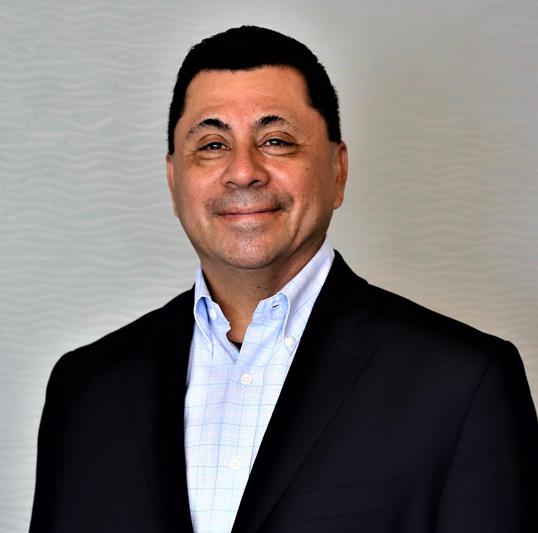
JULIO ESCOBAR
Founder Excell Network
Un mensaje del fundador de Excell Network
La vida es una historia que escribimos día a día, desde que nacemos hasta que dejamos de respirar. Claro, todas las historias tienen un principio y un final.
El ciclo de la vida cambia de una etapa a otra casi sin darnos cuenta. Si hemos vivido en un ambiente positivo la infancia se va muy rápido y casi sin darnos cuenta llegamos a la secundaria, pareciera que al día siguiente salimos de ella para continuar aprendiendo en el colegio, luego la universidad, y poco tiempo después comenzamos a trabajar. Así escribimos parte de nuestra historia.
Sucede lo contrario si en la vida hay capítulos dolorosos y desafiantes que puede hacer más difícil reescribir nuestra propia historia ya que muchas veces nos sentimos atrapados en el pasado e impotentes para hacer cambios.
Sin embargo, no dejamos de soñar. En Excell Network creemos en nuestra red de conexiones que nos apoyan casi naturalmente a reescribir historias. Primero a través de los donantes en quienes creemos por la gran valiosa ayuda. Luego por medio de nuestros protagonistas; los estudiantes a quienes apoyamos. Ellos a través del estudio, trabajo y mucho esfuerzo, avanzan y van reescribiendo sus historias sin desanimarse a pesar de sus condiciones y retos. Van motivados por un objetivo común que no es otro más que graduarse de una profesión y terminar su periodo de libertad condicional.
Es por eso que todos los estudiantes de Excell Network son empoderados cuando intentan cambiar la narrativa de su historia, cuando no dejan de creer en algo que está arraigado a su persona.
Creemos y trabajamos para esta misión y le agradecemos por continuar generosamente apoyando a los estudiantes de Excell Network.
JULIO ESCOBAR


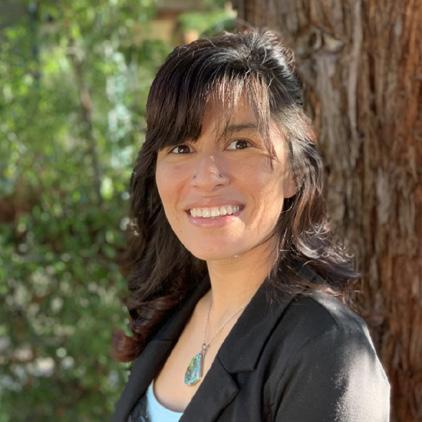
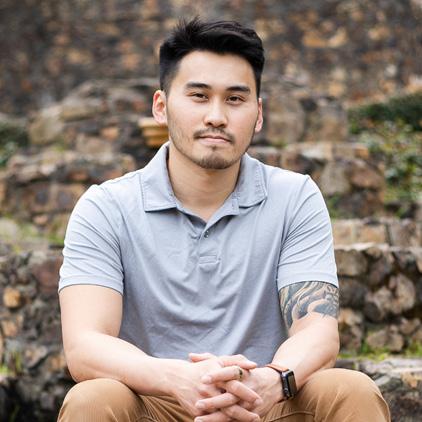
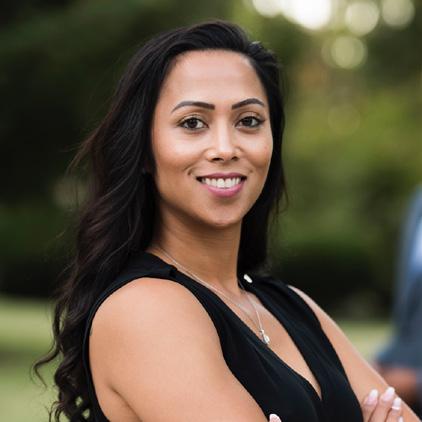
“I was stuck in this victim’s mentality”
Three years ago, Collette Stroganov felt the bottom drop out of her life.
In the aftermath of her second D.U.I., it seemed as though she had lost everything her job, her car and, worst of all, custody of her beloved daughter, Maylana.
She also lost her freedom. Sitting in the Santa Rosa County Jail, she became so depressed she was placed in solitary confinement. There would be plenty of time during the next 30 days to examine the past 30 years of her life and see how things had gotten this way.
Stroganov was a mixed-race child who was adopted when she was one. Her biological mother, whom she met once when she was 11, was Native American. Her biological father, whom she never met, was Latino. The family that adopted her was white.
“I experienced racism growing up in a white family,” she says. “And one of the things I struggled with was not feeling that I fit in.”
Stroganov grew up in Novato, but since her father was in the military, the family moved around a lot. She lived in Puerto Rico, New York, Oregon and all over the Bay Area, an outdoorsy kid who enjoyed the freedom that living on a safe military base offered.
“The only real rule we had,” she says, “was that we had to be in when the streetlights came on.”
As a teenager, she grew rebellious. She experienced abuse in the family she struggled to feel a part of, and felt overwhelmed at times by feelings she couldn’t identify.
“I was struggling with anxiety and depression,” she says. “But I didn’t know that then.”
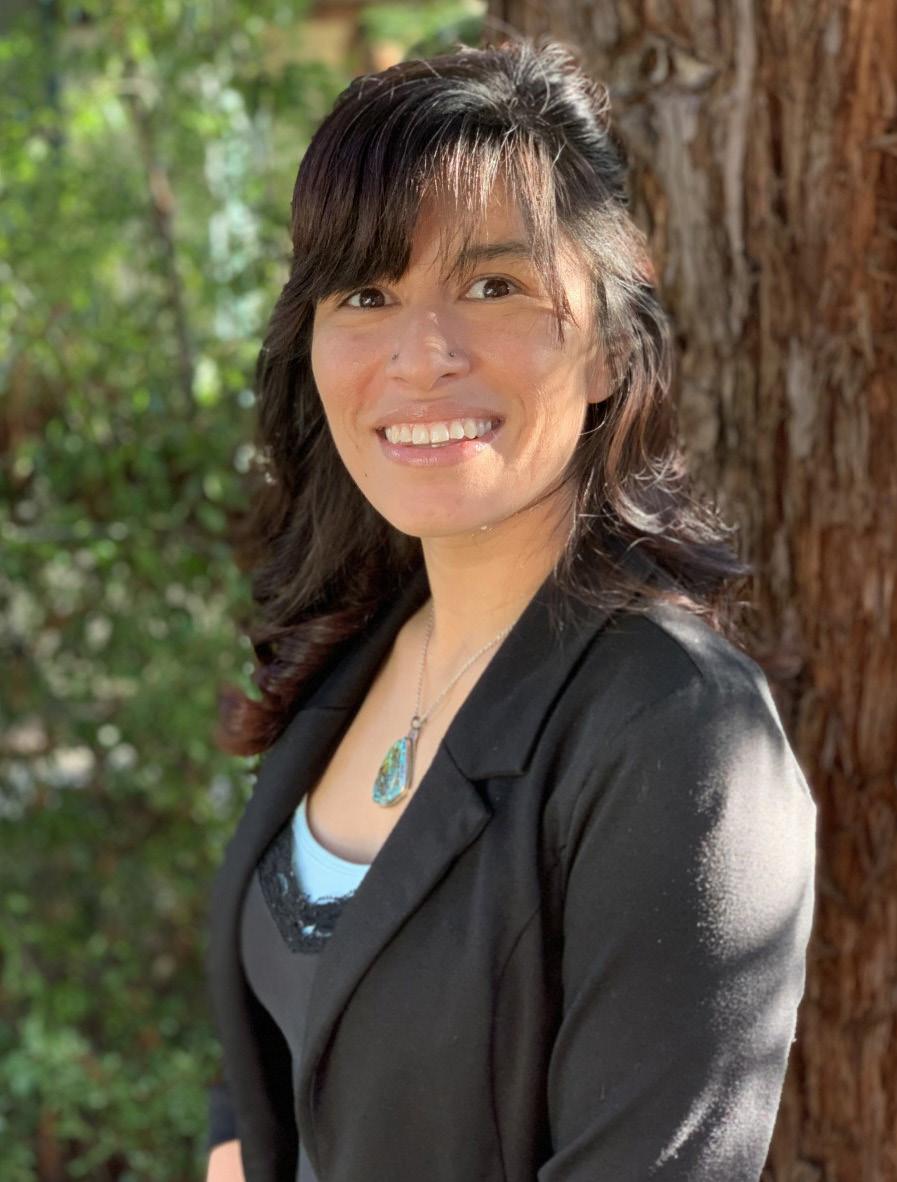 By Dana Perrigan Writer | Journalist | Book Author
By Dana Perrigan Writer | Journalist | Book Author
Hace tres años, Collette Stroganov sintió que su vida se hundía.
Después de su segundo D.U.I., parecía que lo había perdido todo: su trabajo, su automóvil y, lo peor de todo, la custodia de su amada hija, Maylana.
Ella también perdió su libertad. Sentada en la cárcel del condado de Santa Rosa, se deprimió tanto que la pusieron en confinamiento solitario. Habría mucho tiempo durante los próximos 30 días para examinar los últimos 30 años de su vida y ver cómo las cosas habían llegado hasta allí.
Stroganov era una niña mestiza que fue adoptada cuando tenía un año. Su madre biológica, a quien conoció una vez cuando tenía 11 años, era nativa americana. Su padre biológico, a quien nunca conoció, era latino. La familia que la adoptó era blanca.
“Experimenté el racismo al crecer en una familia blanca”, dice. "Y una de las cosas con las que luché fue sentir que no encajaba".
She turned to alcohol, which offered a quick if temporary escape.
After high school, Stroganov became a licensed pharmacy technician. She met the man who would become the father of her child. They were both into partying with drugs and alcohol and when Stroganov became pregnant, the relationship became abusive. She wasn’t sure she wanted to have a child, but finally decided to go ahead. “It was the best decision I ever made,” she says.
Her next decision was easier. After her boyfriend beat her up on her birthday, breaking her collarbone and putting her in the hospital, she decided to leave him and move to Oregon, where she had friends and family.
Soon she was working three jobs, still struggling with anxiety and depression.
“I was stuck in this victim’s mentality,” she says. “I felt I was entitled that I deserved to drink.”
She ran into an old high school friend. For a while, the relationship seemed good. But shortly after he started smoking meth, he became abusive. Once again, Stroganov decided it was time to leave.
“I drove to California with a black eye and eighty dollars in my pocket,” she says.
Returning to Novato to stay with a girlfriend, Stroganov got a job in the telecommunications industry. But her ex-boyfriend in Oregon began threatening and harassing her at work. It got so bad the company instituted new security protocols.
Stroganov started drinking again and got her first driving under the influence conviction. A friend suggested Alcoholics Anonymous, but Stroganov wasn’t keen on the idea. She imagined a bunch of drunks sitting around with brown paper bags. But after getting her second D.U.I., she knew she needed to do something.
“I had to admit to myself that my way wasn’t working,” she says. “I had to set my pride aside and learn how to ask for help.”
Stroganov credits her A.A. sponsor with giving her that help. At her suggestion, she took a job at a local coffee shop. She connected with the community and started taking classes at Santa Rosa Community College. She also met the man she would eventually marry.
Stroganov creció en Novato, pero como su padre estaba en el ejército, la familia se mudó mucho. Vivió en Puerto Rico, Nueva York, Oregón y en todo el Área de la Bahía, una niña que disfrutaba al aire libre que disfrutaba de la libertad que le ofrecía vivir en una base militar segura.
"La única regla real que teníamos", dice, "era que teníamos que estar dentro cuando se encendieran las luces de la calle".
Cuando era adolescente, se volvió rebelde. Sufrió abuso en la familia de la que luchaba por sentirse parte y, a veces, se sentía abrumada por sentimientos que no podía identificar.
"Estaba luchando contra la ansiedad y la depresión", dice. "Pero yo no sabía eso entonces".
Se volvió hacia el alcohol, que le ofreció un escape rápido, aunque temporal.
Después de la escuela secundaria, Stroganov se convirtió en técnico de farmacia con licencia. Conoció al hombre que se convertiría en el padre de su hijo. A ambos les gustaba divertirse con drogas y alcohol pero cuando Stroganov quedó embarazada, la relación se volvió abusiva. No estaba segura de querer tener un hijo, pero finalmente decidió seguir adelante. “Fue la mejor decisión que tomé”, dice.
Su siguiente decisión fue más fácil. Después de que su novio la golpeara en su cumpleaños, le rompiera la clavícula y la internaran en el hospital, decidió dejarlo y mudarse a Oregón, donde tenía amigos y familiares. Pronto tuvo tres trabajos, todavía luchando contra la ansiedad y la depresión.
"Estaba atrapada en la mentalidad de esta víctima", dice. "Sentí que tenía derecho, que merecía beber".
Se encontró con un viejo amigo de la escuela secundaria. Por un tiempo, la relación pareció buena. Pero poco después de que él empezara a fumar metanfetamina, se volvió abusivo. Una vez más, Stroganov decidió que era hora de dejarlo.
“Conduje hasta California con un ojo morado y ochenta dólares en el bolsillo”, dice.
Al regresar a Novato para quedarse con una amiga, Stroganov consiguió un trabajo en la industria de las telecomunicaciones. Pero su exnovio en Oregón comenzó a amenazarla y acosarla en el trabajo. Se puso tan mal que la empresa instituyó nuevos protocolos de seguridad.
Stroganov had always wanted to go back to school, but didn’t think it would be possible to do so. Her husband encouraged her and she finally decided to give it a try.
The past year, says Stroganov, has been amazing. She has a 4.0 grade point average and is working toward an associate degree in human services addictive studies and advocacy. She wants to eventually become a drug and alcohol counselor, to work with the incarcerated and help them transition back into society.
Stroganov was also recently accepted into Communidad San Dimas’ Excell Network Program and an Archdiocese of San Francisco / Reentry Scholarship Stipend Fund financed through a grant to the California Catholic Conference restorative justice programs from the Catholic Campaign for Human Development (CCHD).
In the meantime, as president of Students for Recovery, treasurer of the Second Chance Club and a member of the Human Services Advisory Committee, she gets to support others along the way.
“It’s the coolest thing,” she says. “I’m all in.”
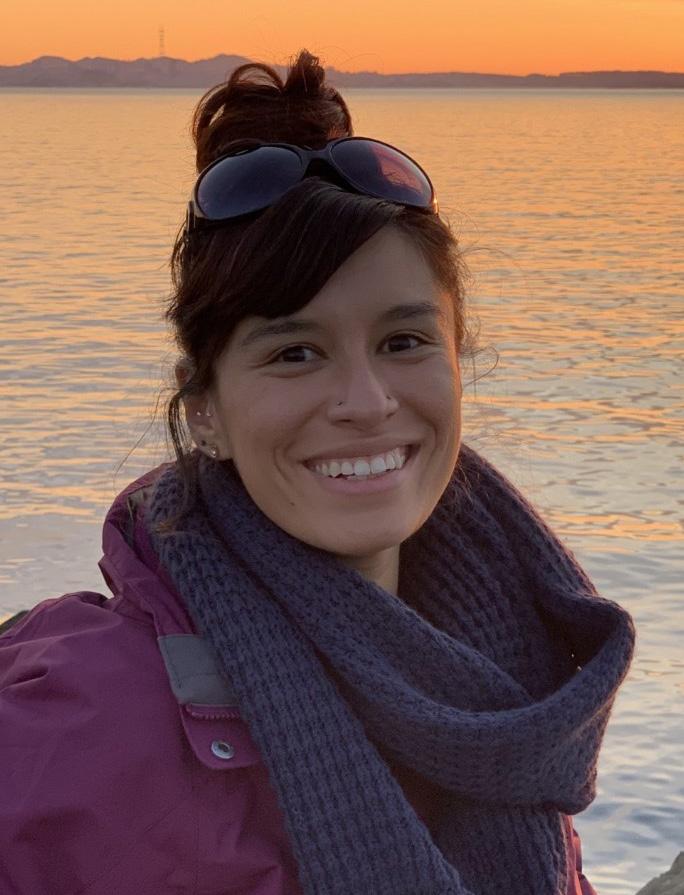
Stroganov volvió a beber y consiguió su primera condena por conducir bajo los efectos del alcohol. Un amigo sugirió Alcohólicos Anónimos, pero a Stroganov no le gustó la idea. Se imaginó a un grupo de borrachos sentados con bolsas de papel marrón. Pero después de obtener su segundo D.U.I., supo que tenía que hacer algo.
"Tuve que admitirme a mí misma que mi camino no estaba funcionando", dice. "Tuve que dejar mi orgullo a un lado y aprender a pedir ayuda".
Stroganov le da crédito a su patrocinador en A.A. por darle esa ayuda. Por sugerencia suya, tomó un trabajo en una cafetería local. Se conectó con la comunidad y comenzó a tomar clases en Santa Rosa Community College. También conoció al hombre con el que eventualmente se casaría.
Stroganov siempre había querido volver a la escuela, pero creía que no era posible hacerlo. Su marido la animó y finalmente decidió intentarlo.
El año pasado, dice Stroganov, ha sido asombroso. Tiene un promedio de calificaciones de 4.0 y está trabajando para obtener un título de asociado en servicios humanos, estudios adictivos y defensa. Ella quiere convertirse eventualmente en consejera de drogas y alcohol, trabajar con los encarcelados y ayudarlos en la transición de regreso a la sociedad.
“Estaba atrapada en esa mentalidad de víctima”
Stroganov también fue aceptada recientemente en el Programa Excell Network de la Comunidad San Dimas y en un Fondo de Estipendio de Becas de la Arquidiócesis de San Francisco / Reingreso financiado a través de una subvención a los programas de justicia restaurativa de la Conferencia Católica de California y la Campaña Católica para el Desarrollo Humano (CCHD) a nivel nacional.
Mientras tanto, como presidenta de Estudiantes en Recuperación, tesorera del Club Segunda Oportunidad y miembro del Comité Asesor de Servicios Humanos, puede apoyar a otros en el camino.
"Es la cosa más genial", dice ella. "Ahora voy con todo".
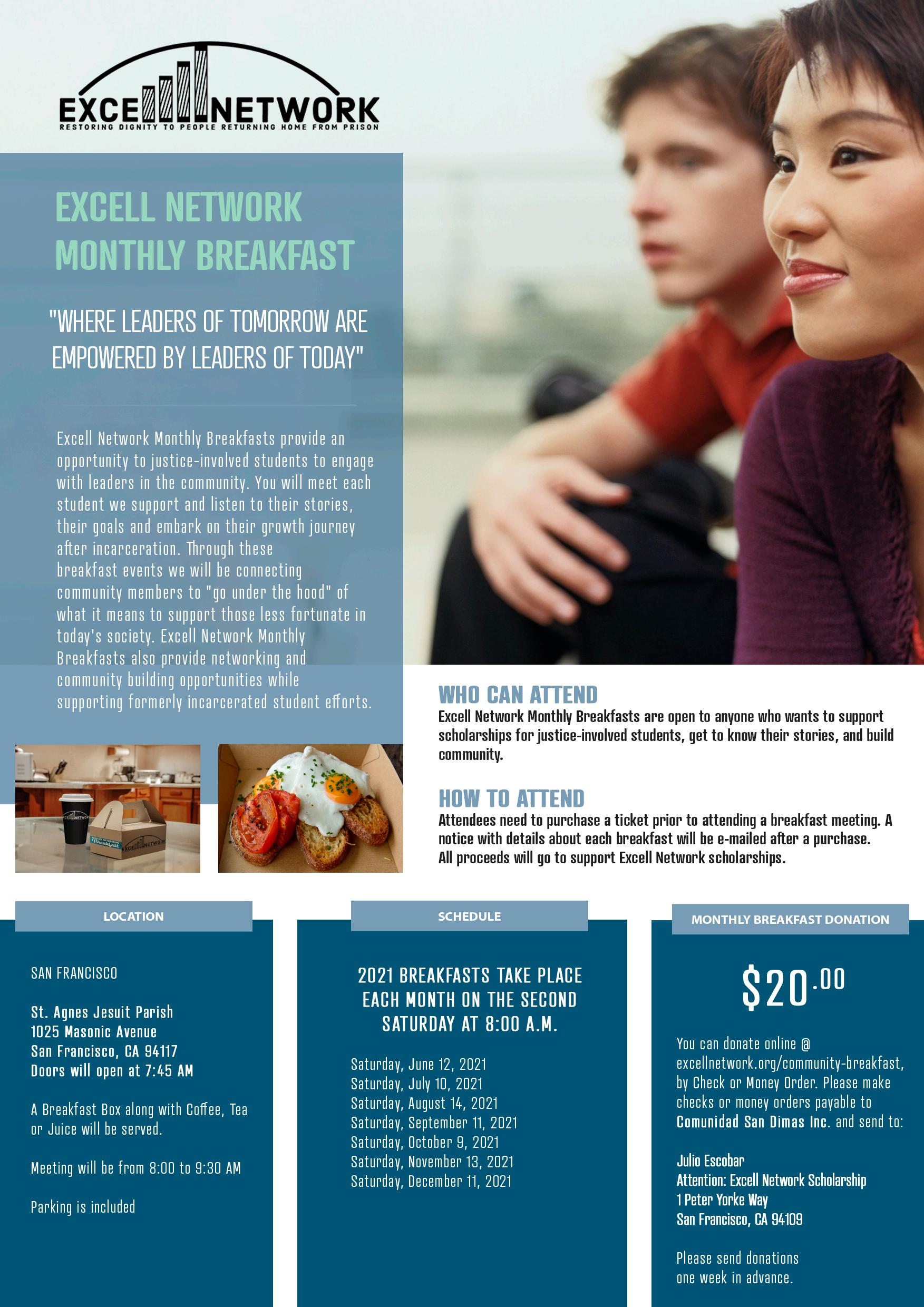
JOHN CUNNINGHAM:
“Each and every one of us has a purpose, and this right now is a place of preparation to propel me into my purpose. And I’m grateful for the opportunity.”
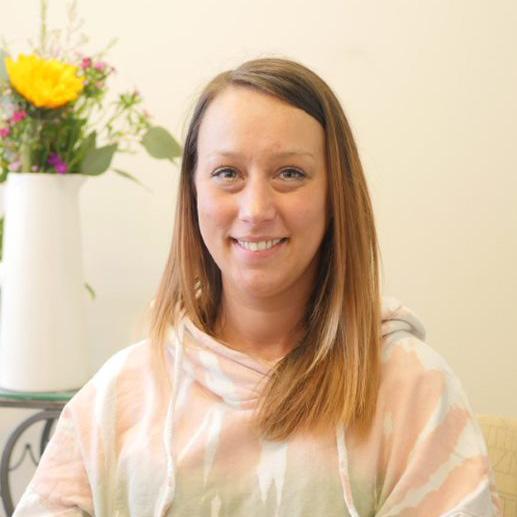
JOSEPH KRAUTER:
LINDSAY CROFT:
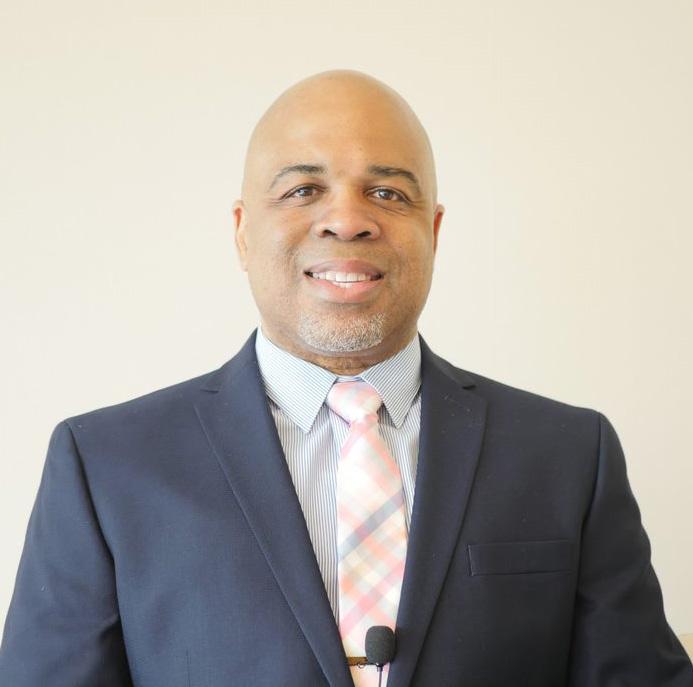
“I've recently been looking into being a court reporter, and I feel that would be like a good life choice for me.”
“It makes my heart happy to learn things and get bolstered up like that, to know that I have a pursuit and a purpose and that education is like a huge vehicle for that. It makes me so happy.”
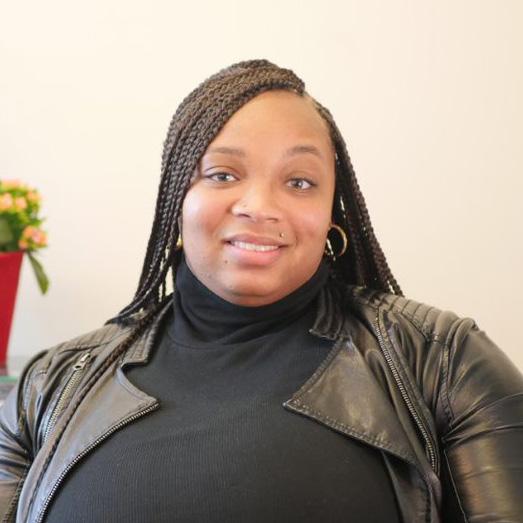
LAKISHA RICHMOND:
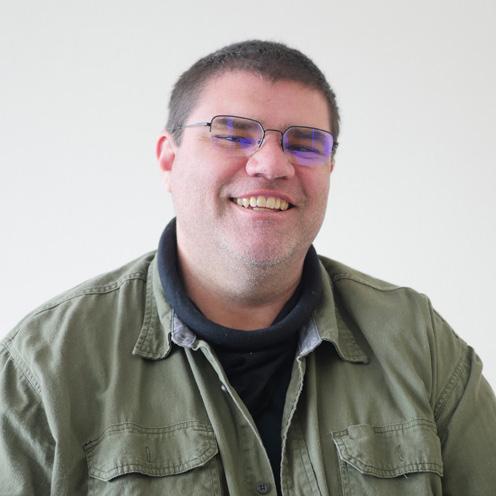
“Also, being around people that are just like me. They see like, wow, she’s in college, she’s doing it. She’s actually pushing forward no matter if she’s taking one class. I think that that’s a big tool for me because I’m able to help others around me.”
LILLIANA GONZALEZ:
“I’m bettering myself. Right now I’m taking sociology classes because one day I would like to become a Social Worker. I love helping people.”
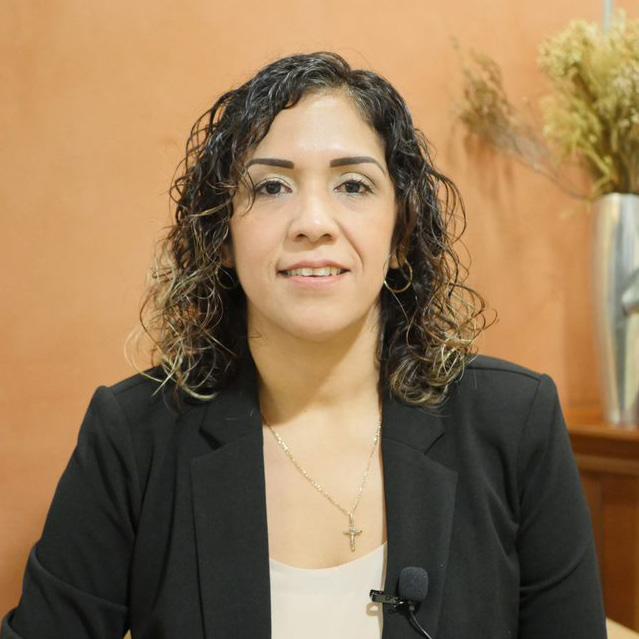
SY YEN HONG:
“I believe that through education, it allowed me to be able to communicate with others who didn’t come from the same background as I did, whereas in the past it would be hard for me to even speak to people where I felt that they wouldn’t understand my background.”
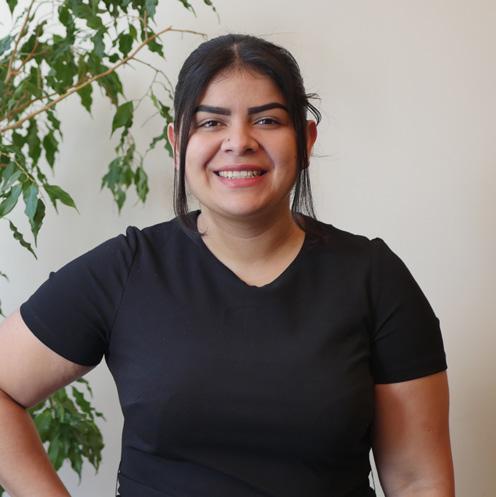
JESSY MARTINEZ:
YUNIA GUARDADO:
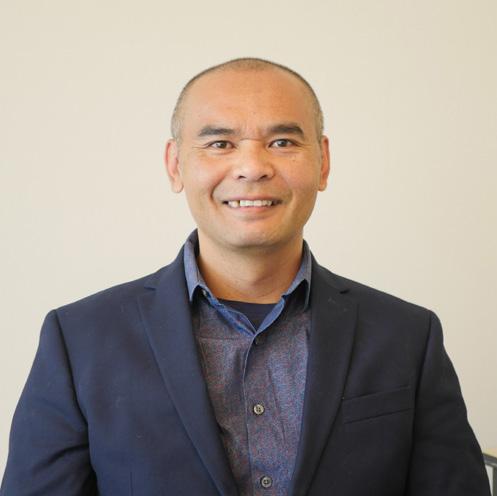
“I'm taking classes, I’m improving in my life, and I’m excited to see what’s the next chapter of my life right now.”
“I kind of have an understanding of what it’s like to notto feel like you have no one in your life, to feel completely alone and to feel like no one’s willing to listen to you, so I feel like they might be in the same place I used to be.”
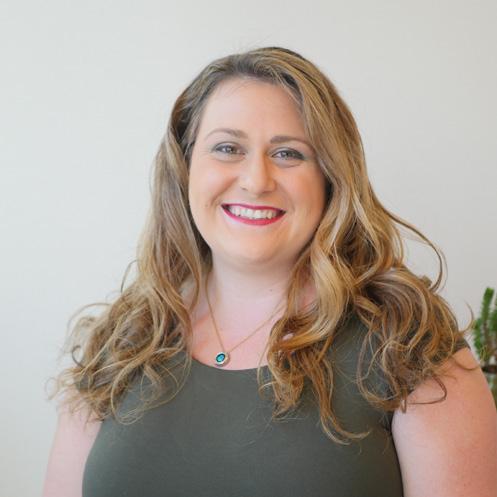
OMAR BREEDLOVE:
HEATHER LEACH:
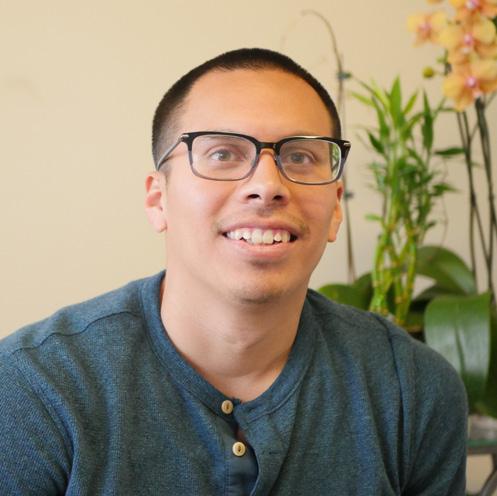
“I changed my major from business to sociology because I am really enjoying working in the nonprofit field and I feel my lived experience, matched with the proper education, can get me so much further through life.”
“Who I really was, was not who I had been. So when I looked at who I really was and the type of person that I am and the things that I enjoy, one of the things that I found that I enjoyed was helping other people.”
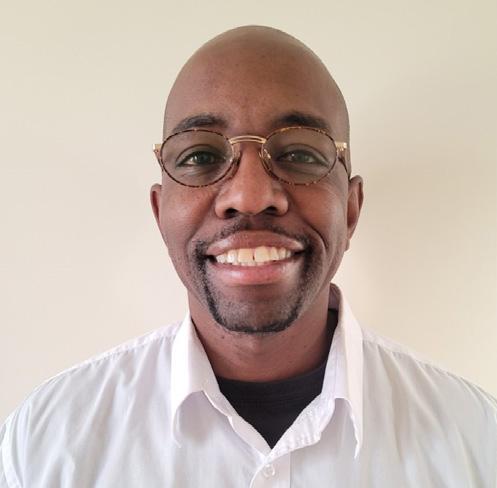
“I was literally living a double life"
As a boy growing up in Vietnam, Trung Tong listened to adults in his family talk in glowing terms about America a wealthy and powerful nation of immigrants, blessed with economic opportunity for those willing to work hard, where equality reigned and dreams became reality.
But when Tong left his native land at the age of nine with his twin brother and father to join his mother in San Jose, the reality was somewhat different.
“It was a huge change for me,” he says. “There was a huge sense of loneliness. My brother and I were bullied in school. There was racism the stuff that’s going on right now. We heard words like ‘chink’ and ‘gook.’”
He also missed the support of the large, extended family he had left behind in Vietnam.
“On top of that,” he says, “I started realizing that my family was really poor.”
Three years later, Tong’s family moved to San Jose’s east side. He started hanging out with kids whose older family members belonged to a gang. He felt a bond with them. It wasn’t long before he was drinking and taking drugs. Soon, violence and the threat of violence became part of his world.
“I remember when two guys beat up my brother at the skateboard park,” he says. “It put it in my head that I didn’t want to be a weak person who gets stepped on. I was looking for ways to gain power.”
Tong also remembers that the things he was now doing which included shoplifting and burglary didn’t fit in with the values he had once held. A Boy Scout on his way to earning the rare and coveted rank of Eagle Scout, he was working and going to school. But on the weekends he was running with a Vietnamese gang.
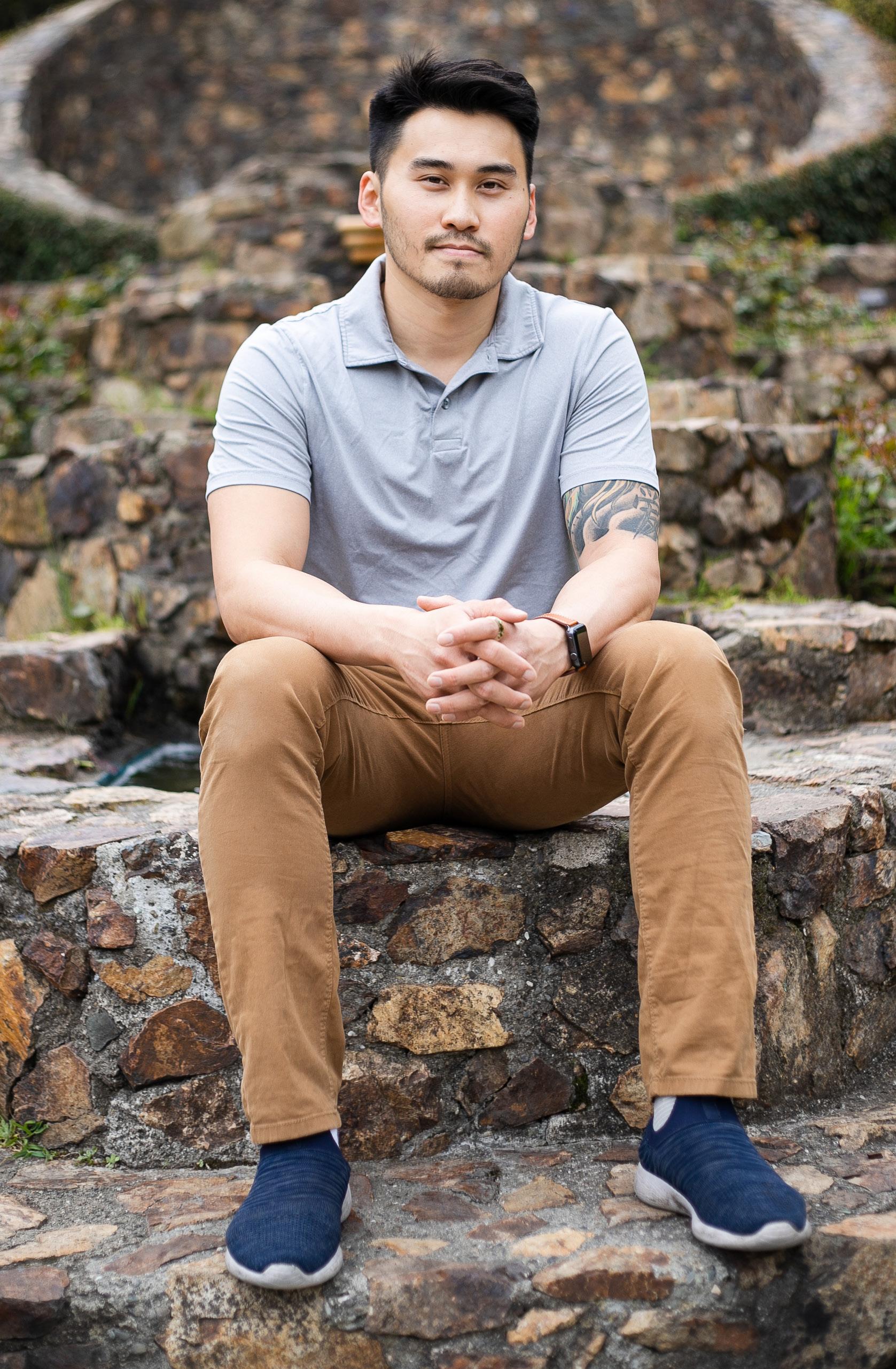 By Dana Perrigan Writer | Journalist | Book Author
By Dana Perrigan Writer | Journalist | Book Author
De niño creció en Vietnam, Trung Tong escuchaba a los adultos de su familia hablar con elogios sobre los Estados Unidos, una nación rica y poderosa de inmigrantes, bendecida con oportunidades económicas para quienes deseaban trabajar duro, donde reinaba la igualdad y los sueños se hacían realidad.
Pero cuando Tong dejó su tierra natal a la edad de nueve años con su hermano gemelo y su padre para reunirse con su madre en San José, la realidad fue algo diferente.
“Fue un gran cambio para mí”, dice. “Había una gran sensación de soledad. Mi hermano y yo fuimos intimidados en la escuela. Había racismo, cosas que están sucediendo en este momento. Escuchamos palabras como 'chink' y 'gook' ".
“I was literally living a double life,” he says.
After graduating from high school, the double life continued. He took classes at a junior college and had a job, but he was back on the streets with his gang on the weekends. Sometimes he got chased down and beat up by rival gang members.
“I was just in a really dark place,” he says.
It would get darker.
When his brother was attacked in front of a house where a party was going on one night, Tong pulled a knife and stabbed his brother’s assailant. The young man died the next day. Three days later, he and his brother were arrested. Since they were twins, there was confusion over who had pulled the knife. Tong’s brother was charged with homicide; Tong was charged with being an accomplice.
Nearly two years went by before Tong decided to turn himself in.
“I decided I didn’t want to live this way anymore,” he says. “I couldn’t live with the fact that I was running away from the truth.”
Convicted of manslaughter, Tong was sentenced to Solano State Prison for seven years. While there, he completed the Offender Mentor Certification Program, which he credits with helping him face some painful truths about himself. He took community college courses and began assisting a counselor in helping inmates complete a substance abuse program.
También extrañaba el apoyo de la gran familia extendida que había dejado en Vietnam.
"Además de eso", dice, "comencé a darme cuenta de que mi familia era realmente pobre".
Tres años después, la familia de Tong se mudó al lado este de San José. Comenzó a salir con niños cuyos familiares mayores pertenecían a una pandilla. Sintió un vínculo con ellos. No pasó mucho tiempo antes de que comenzara a beber y usar drogas. Pronto, la violencia y la amenaza de violencia se convirtieron en parte de su mundo.
“Recuerdo cuando dos tipos golpearon a mi hermano en el parque de patinetas”, dice. “Se me pasó por la cabeza que no quería ser una persona débil a la que pisotean. Estaba buscando formas de ganar poder".
Tong también recuerda que las cosas que estaba haciendo ahora, que incluían hurtos y robos en tiendas, no encajaban con los valores que alguna vez tuvo. Un Boy Scout en camino de obtener el raro y codiciado rango de Eagle Scout, estaba trabajando y asistiendo en su escuela. Pero los fines de semana corría con una pandilla vietnamita.
"Literalmente, estaba viviendo una doble vida", dice. Después de graduarse de la escuela secundaria, la doble vida continuó. Tomó clases en una universidad y tenía un trabajo, pero volvía a las calles con su pandilla los fines de semana. A veces lo perseguían y golpeaban miembros de pandillas rivales.
"Estaba en un lugar realmente oscuro", dice.
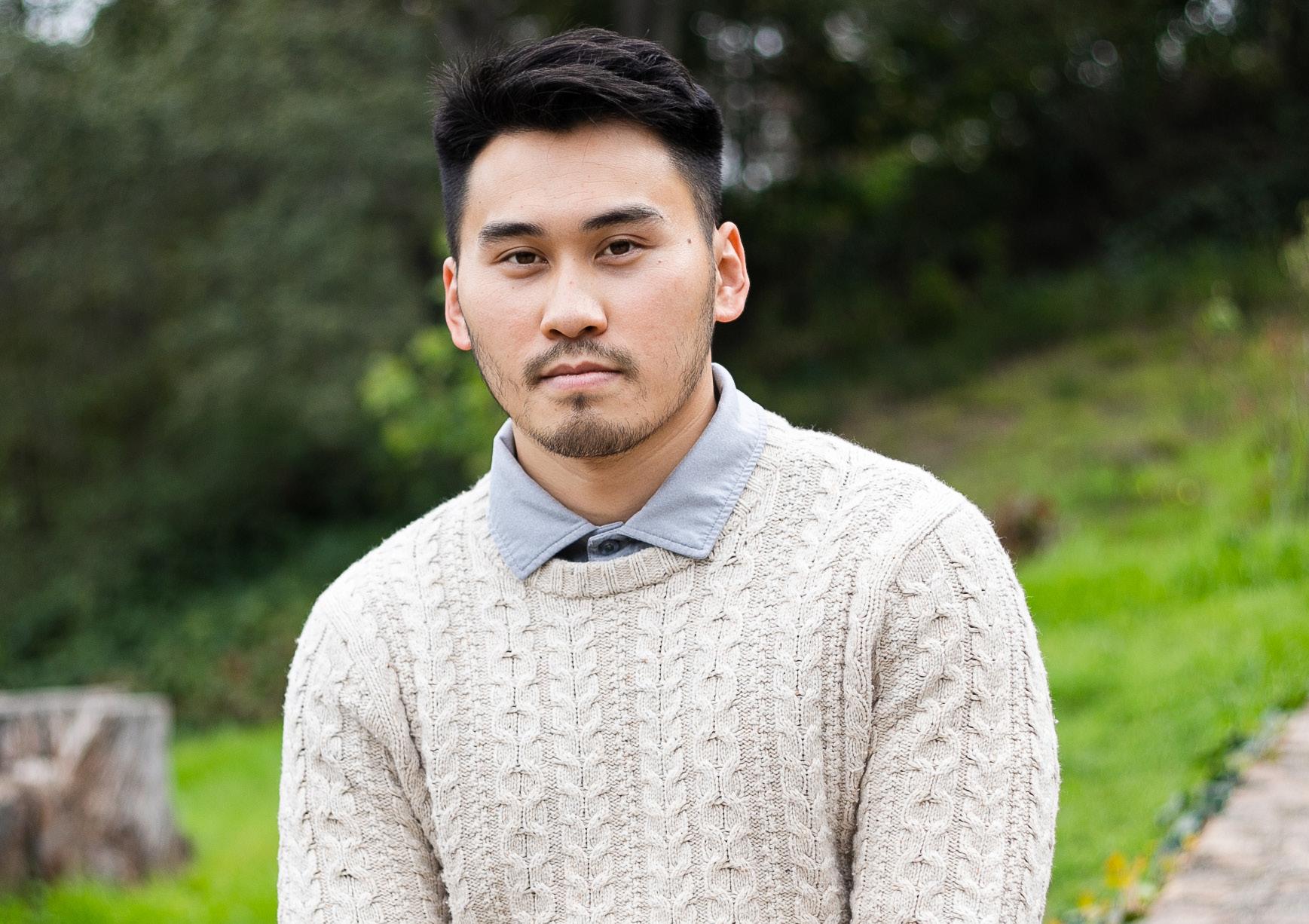
Y se pondría más oscuro.
Cuando su hermano fue atacado frente a una casa donde se celebraba una fiesta una noche, Tong sacó un cuchillo y apuñaló al agresor de su hermano. El joven murió al día siguiente. Tres días después, él y su hermano fueron arrestados. Como eran gemelos, había confusión sobre quién había sacado el cuchillo. El hermano de Tong fue acusado de homicidio; Tong fue acusado de ser cómplice.
Pasaron casi dos años antes de que Tong decidiera entregarse.
"Decidí que ya no quería vivir de esta manera", dice. "No podía vivir con el hecho de que estaba huyendo de la verdad".
Tong was released last year, two years ahead of schedule. He was accepted into the Project Rebound program at San Francisco State University, where he is majoring in psychology. This fall, he will apply to graduate school and, after earning a master’s degree, plans to become a licensed clinical social worker.
Tong was also recently accepted into Communidad San Dimas’ Excell Network Program and an Archdiocese of San Francisco / Reentry Scholarship Stipend Fund financed through a grant to the California Catholic Conference restorative justice programs from the Catholic Campaign for Human Development (CCHD).
Condenado por homicidio involuntario, Tong fue condenado a la prisión estatal de Solano durante siete años. Mientras estuvo allí, completó el Programa de Certificación de Mentores de Delincuentes, al que atribuye haberlo ayudado a enfrentar algunas verdades dolorosas sobre sí mismo. Tomó cursos de la universidad comunitaria y comenzó a ayudar a un consejero que ayudaba a los reclusos a completar un programa de abuso de sustancias.
Tong logró ser puesto en libertad el año pasado, dos años antes de lo previsto. Fue aceptado en el programa Project Rebound de la Universidad Estatal de San Francisco, donde se especializa en psicología. Este otoño, se postulará para la escuela de posgrado y, después de obtener una maestría, planea convertirse en un trabajador social clínico con licencia.
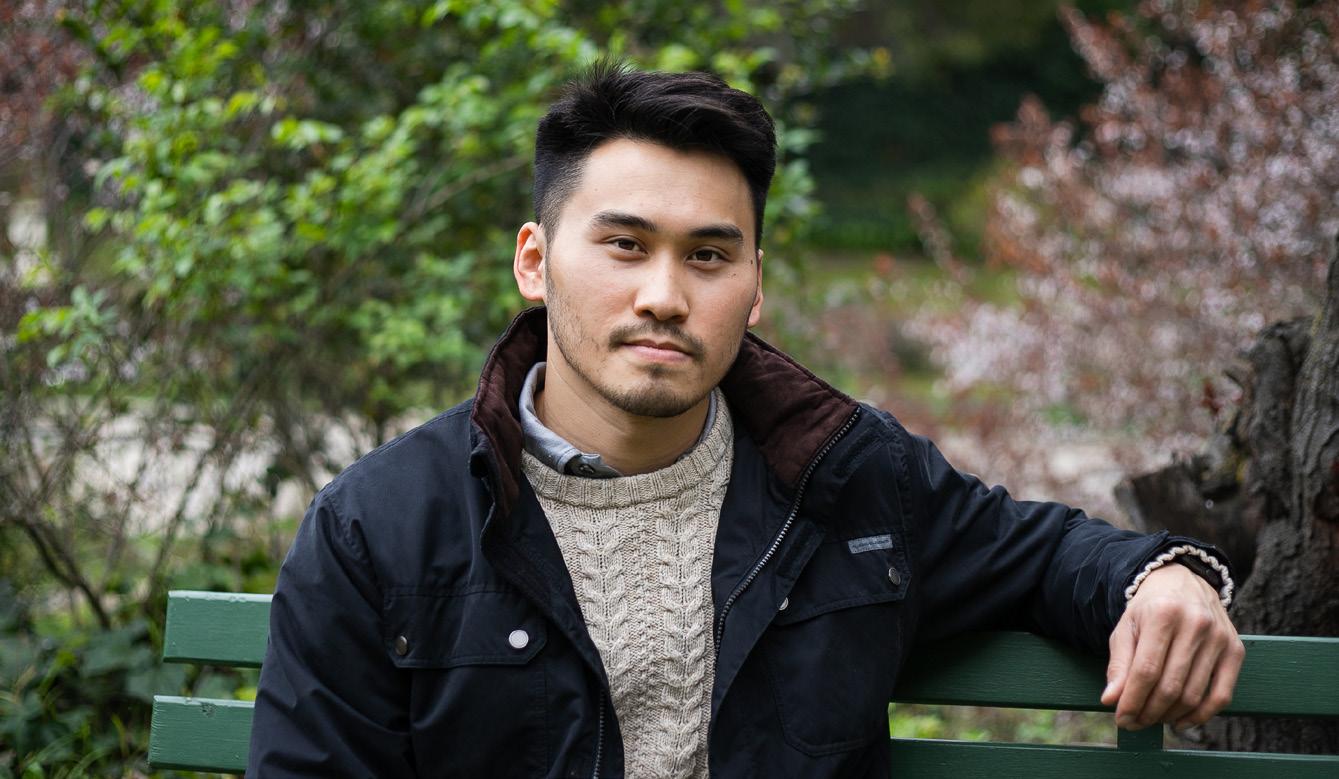
Tong also works as a substance abuse counselor with Options Recovery Services in Berkeley, serving the homeless population of Alameda County.
Feeling that something was missing in his life, Tong began attending Christian worship services while still in prison. After his release, he enrolled in the Rite of Christian Initiation for Adults (RCIA), which prepares adults interested in becoming members of the Catholic Church. He was baptized this Easter.
“I should have been dead,” says Tong. “But somebody was protecting me. Somebody was telling me that there is more for me.”
Tong, now 25, looks forward to serving those who have been marginalized by society, those who, like himself, are seeking to rebuild their lives and work for the common good.
“I’m tired of saying I’m sorry to people I’ve hurt or neglected,” he says. “I’m going to show it by my actions.”
Tong también fue aceptado recientemente en el Programa Excell Network de la Comunidad San Dimas y en un Fondo de Estipendio de Becas de la Arquidiócesis de San Francisco / Reingreso financiado a través de una subvención a los programas de justicia restaurativa de la Conferencia Católica de California y la Campaña Católica para el Desarrollo Humano (CCHD) a nivel nacional.
Tong también trabaja como consejero de abuso de sustancias con Options Recovery Services en Berkeley, sirviendo a la población sin hogar del condado de Alameda.
Sintiendo que algo faltaba en su vida, Tong comenzó a asistir a los servicios de adoración cristianos mientras aún estaba en prisión. Después de su liberación, se inscribió en el Rito de Iniciación Cristiana para Adultos (RICA), que prepara a los adultos interesados en convertirse en miembros de la Iglesia Católica. Fue bautizado esta Pascua.
"Debería haber estado muerto", dice Tong. “Pero alguien me estaba protegiendo. Alguien me decía que hay más para mí".
Tong, ahora de 25 años, espera poder servir a aquellos que han sido marginados por la sociedad, a aquellos que, como él, buscan reconstruir sus vidas y trabajar por el bien común.
"Estoy cansado de decir lo siento a las personas que he lastimado o descuidado", dice. "Lo voy a demostrar con mis acciones".
With her 30th birthday only a couple of years away, Nicole Bronson decided to step back and take a good look at her life. Thirty, in her book, was an important milestone. It was a fine time to take stock. Why not do it now?
She saw that she mostly had what she had been striving for a six-figure income, savings, good credit, two cars that were paid for, fine clothes to wear, a nice home in Martinez for her daughter Mia and herself.
It was a long way from the paycheck-to-paycheck environment she had grown up in, but a deep sense of satisfaction, or fulfillment, eluded her.
“I always had this desire for a better lifestyle,” she says, “but it didn’t feel like anything.”
Bronson grew up in the Fillmore and Lakeview districts of San Francisco, the mixed-race child of parents who divorced when she was eight. She realized that, materially, she was better off than her friends who lived in the projects, but she longed for the love, intimacy and sense of community she saw there.
Although her mother remarried when she was 12, Bronson’s home life remained troubled. She suffered abuse and, after a fight with her mother, was kicked out of the house when she was 15. She quickly learned how to steal to get what she wanted.
“The end justifies the means,” she says. “That was my mindset. That’s what it’s like in the ‘hood.”
Circumstances changed as the years went by, but the mindset remained. The desire for security and status through material possessions only increased after the birth of her daughter.
“I put a lot of expectations on me and my daughter,” she says. “The expectations were not always realistic.”
“I always had this desire for a better lifestyle”
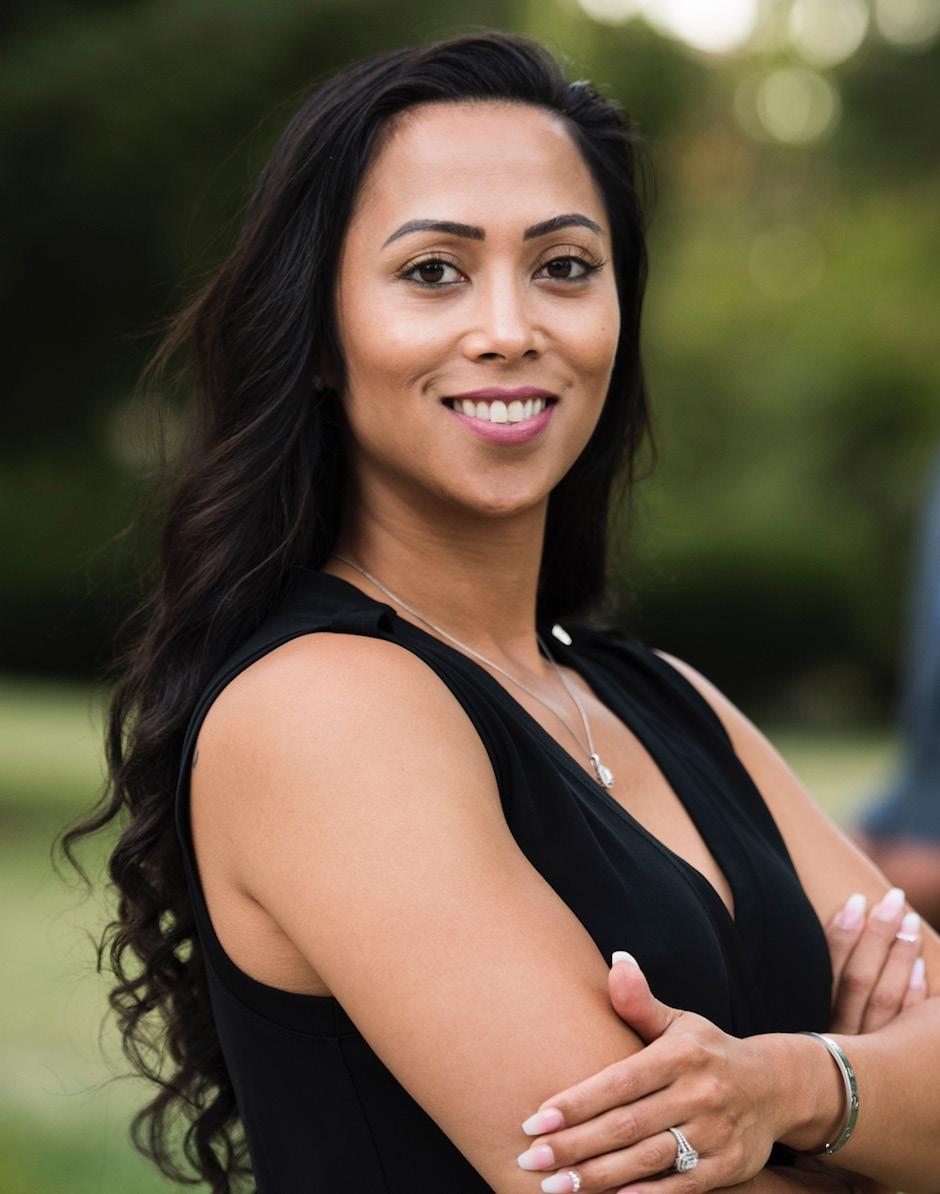 By Dana Perrigan Writer | Journalist | Book Author
By Dana Perrigan Writer | Journalist | Book Author
Asolo un par de años para su cumpleaños número 30, Nicole Bronson decidió dar un paso atrás y echar un buen vistazo a su vida. Treinta, en su libro, era un escalón importante. Era un buen momento para evaluar. ¿Por qué no hacerlo ahora?
Vio que en su mayoría tenía lo que había estado luchando: un ingreso de seis cifras, ahorros, buen crédito, dos autos pagados, ropa elegante para usar, una linda casa en Martínez para su hija Mia y para ella. Estaba muy lejos del entorno de cheque a cheque en el que había crecido, pero un profundo sentido de satisfacción o realización la eludía.
"Siempre tuve este deseo de un mejor estilo de vida", dice, "pero no se sentía como nada".
So when an opportunity to boost her income by diverting funds from the tech company she was working for to herself presented itself, she took it.
“I thought, ‘This is an easy lick to hit,’” she says. “I figured out a scheme.”
The scheme worked. She started off by siphoning off only a few thousand dollars at a time, but the amount quickly increased. It fueled an increasingly lavish lifestyle in Los Angeles, where she and her daughter were then living.
“I think I just got greedy,” she says. “I learned that the more you sin, the less your conscience stings.”
Several years after examining her life as she approached 30, Bronson paid for her sin with a conviction for wire fraud and a 22-month sentence in the Federal Correctional Institution in Victorville -- a prison located in San Bernardino County.
“I never thought of my freedom being taken from me,” she says, “but the hardest part was that I had to be away from my daughter.”
Prison would change her perspective, but something happened before she began her sentence that would change it even more.
“One of my clients came in and spoke these words to me: She said, ‘Hey, do you want to come to church?’”. Bronson accepted the invitation.
From the moment she walked in, she said, the place felt familiar. And when it came time for an altar call, she answered, walking up to the front of the congregation and professing her belief in Jesus Christ.
“I don’t even remember walking up there. And then I was bawling this ugly cry that you don’t want anyone to see was going on. I just felt that I had been lost for so long and that I had finally come home.”
The next time she attended the service, she brought Mia, who had the same conversion experience.
“Now I’m living for a purpose,” says Bronson, who was released from Victorville four months ago. “And my true purpose and calling revolves around people.”
Bronson creció en los distritos de Fillmore y Lakeview de San Francisco, hija mestiza de padres que se divorciaron cuando ella tenía ocho años. Se dio cuenta de que, materialmente, estaba mejor que sus amigos que vivían en los proyectos, pero anhelaba el amor, la intimidad y el sentido de comunidad que veía allí.
Aunque su madre se volvió a casar cuando ella tenía 12 años, la vida hogareña de Bronson siguió siendo problemática. Sufrió abusos y, después de una pelea con su madre, la echaron de la casa cuando tenía 15 años. Rápidamente aprendió a robar para conseguir lo que quería.
“Los medios justifican el fin”, dice. “Esa era mi forma de pensar. Eso es lo que se siente en el "hood" vecindario.
Las circunstancias cambiaron con el paso de los años, pero la mentalidad se mantuvo. El deseo de seguridad y estatus a través de posesiones materiales solo aumentó después del nacimiento de su hija.
“Puse muchas expectativas en mí y en mi hija”, dice. "Las expectativas no siempre fueron realistas".
Entonces, cuando se presentó una oportunidad para aumentar sus ingresos al desviar fondos de la compañía de tecnología para la que estaba trabajando, la aprovechó.
"Pensé, 'Esto es algo fácil de golpear'", dice. "Descubrí un plan".
El plan funcionó. Comenzó desviando solo unos pocos miles de dólares a la vez, pero la cantidad aumentó rápidamente. Impulsó un estilo de vida cada vez más lujoso en Los Ángeles, donde ella y su hija vivían entonces.
"Creo que simplemente me volví codiciosa", dice. "Aprendí que cuanto más pecas, menos te duele la conciencia".
Varios años después de examinar su vida cuando se acercaba a los 30, Bronson pagó su pecado con una condena por fraude electrónico y una sentencia de 22 meses en la Institución Correccional Federal en Victorville, una prisión ubicada en el condado de San Bernardino.
"Nunca pensé que me quitarían la libertad", dice, "pero la parte más difícil fue que tenía que estar lejos de mi hija".
Bronson believes that God uses a person’s experiences good and bad to further His own purposes. In prison, she says, she developed empathy for prisoners. She wants to support prison reform, and to help families impacted by a loved one’s confinement.
Bronson has been busy since her own confinement ended. A certified nursing assistant, she cares for the elderly in their homes. She has been accepted into the Project Rebound program at San Francisco State University, where she is pursuing a degree in business management. She and her daughter, Mia, now 16, are growing closer through counseling.
Bronson was also recently accepted into Communidad San Dimas’ Excell Network Program and an Archdiocese of San Francisco / Reentry Scholarship Stipend Fund financed through a grant to the California Catholic Conference restorative justice programs from the Catholic Campaign for Human Development (CCHD). She sees it as an opportunity to use her voice and experience to help those who, like herself, are rebuilding their lives with a different perspective.
“Now I can see things for what they really are,” she says. “I don’t have to wear a mask. Now I’m engaged in exploring the truth.”

La prisión cambiaría su perspectiva, pero algo sucedió antes de que comenzara su sentencia que la cambiaría aún más.
"Uno de mis clientes entró y me dijo estas palabras: Me dijo: 'Oye, ¿quieres venir a la iglesia?'". Bronson aceptó la invitación.
Desde el momento que entró, dijo, este lugar me resulta familiar. Y cuando llegó el momento del llamado al altar, ella respondió, caminando hacia el frente de la congregación y profesando su fe en Jesucristo.
"Ni siquiera recuerdo haber caminado hasta allí. Y luego ya estaba llorando, este llanto horrible que no quieres que nadie vea estaba sucediendo. Simplemente sentí que había estado perdida durante tanto tiempo y que finalmente había regresado a casa".
La próxima vez que asistió al servicio, trajo a Mia, quien tuvo la misma experiencia de conversión.
"Ahora vivo con un propósito", dice Bronson, quien fue liberado de Victorville hace cuatro meses. "Y mi verdadero propósito y vocación gira en torno a las personas".
Bronson cree que Dios usa las experiencias de una persona, buenas y malas, para promover sus propios propósitos. En prisión, dice, desarrolló empatía por los presos. Quiere apoyar la reforma penitenciaria y ayudar a las familias afectadas por el confinamiento de un ser querido.
Bronson ha estado ocupada desde que terminó su propio encierro. Auxiliar de enfermería certificada, se ocupa de los ancianos en sus hogares. Ha sido aceptada en el programa Project Rebound de la Universidad Estatal de San Francisco, donde está cursando una licenciatura en gestión empresarial. Ella y su hija, Mia, ahora de 16 años, se están acercando a través de la consejería.
Bronson también fue aceptada recientemente en el Programa Excell Network de la Comunidad San Dimas y en un Fondo de Estipendio de Becas de la Arquidiócesis de San Francisco / Reingreso financiado a través de una subvención a los programas de justicia restaurativa de la Conferencia Católica de California y la Campaña Católica para el Desarrollo Humano (CCHD) a nivel nacional. Ella lo ve como una oportunidad para usar su voz y experiencia para ayudar a quienes, como ella, están reconstruyendo sus vidas con una perspectiva diferente.
“Ahora puedo ver las cosas como realmente son”, dice. "No tengo que usar una máscara. Ahora me dedico a explorar la verdad ".
